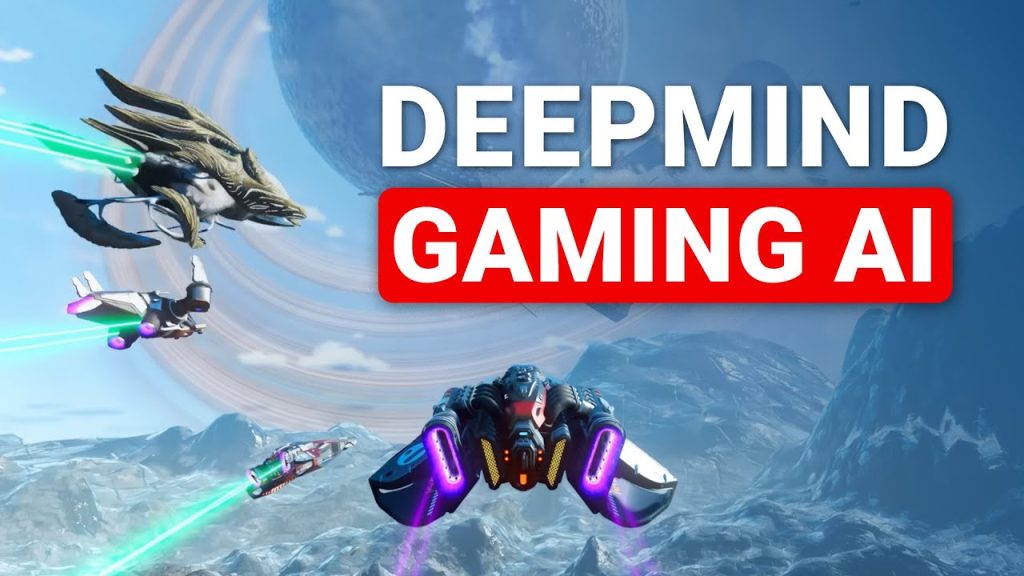Unveiling the Future of AI in Gaming

Witnessing a groundbreaking shift in artificial intelligence, recent advances demonstrate an AI’s ability to master multiple 3D games simultaneously, marking a transition from single-game expertise to robust, multi-game proficiency.
This evolution not only showcases the AI’s enhanced learning capabilities but also underscores a significant leap towards achieving more complex, human-like interactions within digital landscapes, setting a new standard in the realm of AI-driven technology.
The Evolution of Game-Playing AIs
In the realm of artificial intelligence, the ability of AI to play video games has seen remarkable advancements. Unlike previous iterations that specialized in a single game, recent developments showcase a groundbreaking AI capable of mastering multiple modern 3D games simultaneously. This not only represents a huge leap in AI’s adaptability but also highlights a shift in objectives. Rather than merely striving to max out scores, this AI aims to understand and execute complex human instructions.
The Complexity of Visual Learning
The ability of AI to interpret visual data and then respond like a human involves profoundly complex processing. By analyzing a mere ‘pile of pixels,’ this AI discerns a 3D environment and dynamically interacts with it. This capacity mimics the human vision system, marking a significant milestone in AI development. It suggests that AIs might soon offer more intuitive interactions, making them more accessible and useful in everyday applications.
For gamers and researchers alike, the capabilities demonstrated by these AIs are nothing short of impressive. While driving a virtual car or recognizing environments might seem simplistic, the underlying technology is incredibly sophisticated, requiring significant advancements in machine learning and image processing.
From Learning to Application
One of the most intriguing aspects of this AI’s capabilities is its ability to improve through exposure to various games. Unlike specialist agents that excel in one game, this AI leverages its cross-game experience to enhance performance across a spectrum of scenarios. This trait, akin to human cognitive flexibility, suggests a form of artificial intelligence that closely mirrors human learning dynamics.
Notably, this development opens the door to more versatile AI applications. Imagine AIs that could apply their learning across different fields, aiding in tasks ranging from complex strategic planning to simple everyday chores. This broad applicability is not just a testament to AI’s potential but also paves the way for more sophisticated multi-tasking AI systems in the future.
As AI continues to evolve, the possibilities for its application seem almost limitless. With ongoing research pushing the boundaries of what these technologies can achieve, the next versions of such AI systems are eagerly anticipated. They represent not only a technological evolution but also a potential revolution in how AI interacts with the human world.
Practical Implications and Future Outlook
The implications of AI that can operate in complex 3D environments extend beyond the gaming industry. These AIs are stepping stones towards developing systems that could one day understand and interact within our physical world in ways currently limited to human capability.
Such advancements suggest a future where AI could assist in a range of tasks, from navigating real-world environments to providing solutions in dynamic scenarios. The ongoing research and development driven by these innovations could define the next era of AI technology, dramatically enhancing the interface between humans and machines.
Concluding Thoughts on AI Evolution
This journey from game-specific AIs to versatile, instruction-following systems highlights the rapid pace of AI innovation. As the technology matures, its potential utility in diverse fields—from entertainment to practical assistance in the real world—becomes more apparent.
The excitement surrounding these developments is palpable among experts and enthusiasts alike, motivating continued research and exploration in AI. As this technology advances, it promises not only to transform our gaming experiences but also to redefine our interaction with digital and real-world environments in profound ways.
The rapid evolution of AI, particularly in applications like gaming, hints at a future where these technologies could significantly impact various aspects of daily life. As AI systems like the one discussed here grow more sophisticated, their potential to understand and navigate complex environments could lead to more intuitive interactions between humans and machines. This not only changes how we might play games but also opens possibilities for AI assistance in real-world tasks.
The potential of AI to learn from diverse experiences and apply that knowledge across various scenarios is inspiring. It promises to revolutionize our approach to technology, making artificial intelligence an indispensable tool in our everyday lives. The continued developments in this field are not just technical achievements but are paving the way for a new era of human-machine collaboration.





